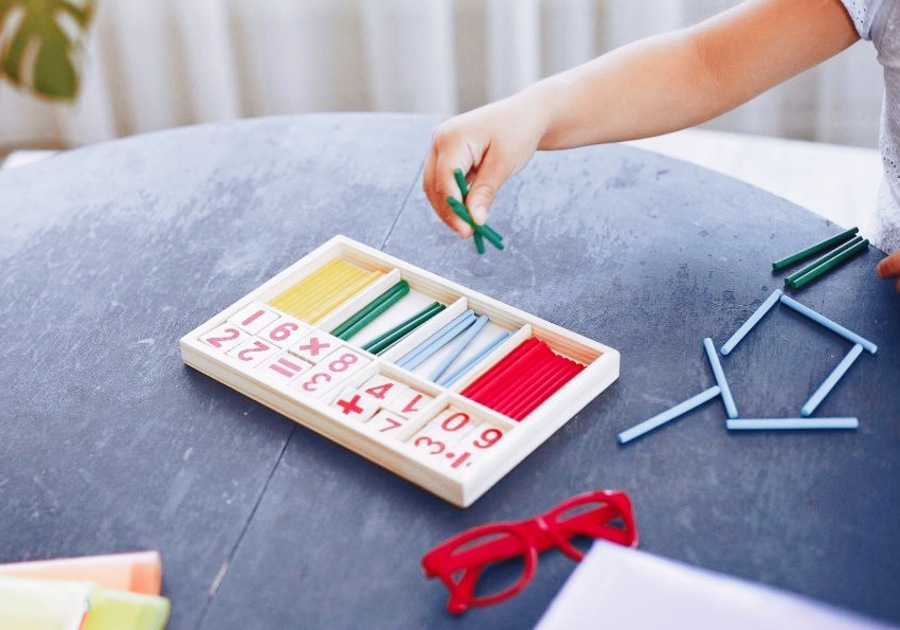Families new to homeschooling often go through an adjustment period as they transition away from school into their new-found freedom. Leaving school can be a major transition in which the entire family needs time to adapt as school culture and practices are so ingrained in each of us and throughout society. Homeschoolers refer to this period as "deschooling."
Deschooling can take days, weeks, or sometimes, months. And to begin truly embracing and taking advantage of the benefits of homeschooling you need to allow that time to decompress and let go of your notions about traditional schooling as the educational standard.
Even if you fully embrace homeschooling as an idea, you may still find yourself wanting to impose a schedule and curriculum on your child at the start only to face resistance. We do that because traditional schooling is what we know and therefore assume that it is the best way to teach and learn. This school-think is a challenging expectation to overcome. We believe that by taking control of their instruction and their time, we can control the outcome. We think if we do otherwise, we’ll miss something and fail our children.
But the truth is that you are not in control of what your child learns, your child is. The learner is always in charge of what’s learned. What you do is create an engaging learning environment, expose them to a wide variety of ideas and content and resources, encourage risk-taking and question-asking and, most importantly, act as a role model of curiosity, resilience and patience. There is no curriculum that will do that for you.
Here are a few thoughts you may have that represent school-think:
“He’s not doing anything!”
“She’s not doing enough.”
“He’s going to fall behind!”
“How do I keep her on grade level?”
And here are a few ways that deschooling can manifest in children:
* They may resist anything that reminds them of school….such as workbooks, assignments or a rigid schedule.
* They may not know what to do with themselves having become accustomed to having their day planned for them.
* If the reason for homeschooling was due to trauma, whether bullying, assault, or otherwise not fitting in, they may need time to heal and regain confidence.
* They may miss their school friends, teachers or activities.
*They may have a negative impression about homeschoolers and resist joining classes or attending gatherings. And they may worry about their identity as a homeschooler.
* They may not know how to reconnect with their own interests and discover their strengths having always been told what they had to learn and how to use their time.
Here are a few tips for taking the pressure off during this adjustment period:
Go easy on the structure:
There is no need to begin day one with a curriculum in hand and a schedule on the wall. Unless your child asks for a school-like day, relax and let those first days unfold naturally with learning opportunities and teachable moments. Doing housework, gardening, shopping and cooking together teach self-reliance and responsibility. Get outside! Going to a park, zoo or museum or just seeing friends (even at a social distance) will all feed your sense of what it means to learn in freedom. Think about what your child is doing as “productive” as opposed to what’s strictly “academic.”
Pay Attention:
Watch what engages your child. Ask them what they’re curious about, what they’d like to learn or learn how to do. Is it a particular subject, event, idea or skill? And then LISTEN. Any time a child is showing curiosity or asking a question is an opportunity to nurture their learning. Ask questions and encourage them to ask their own. Listen carefully and consider how you can build on the conversation, by suggesting a field trip, doing research online, taking a trip to the library or doing a project at home.
Find Your Tribe:
Connect with the homeschooling community and meet up! The support, advice and perspective that other families offer will help broaden your views of education are an essential part of developing your own homeschooling philosophy.
You have an opportunity now to create a learning environment that is tailored perfectly for your child and your family’s lifestyle. It doesn’t need to be structured anything like what goes on in school, unless that’s exactly what works best for all of you. And don’t be afraid to change whatever is not working. Trial and error (and trial again) is how we all learn.
Like parenting, homeschooling is a long game, so it’s worthwhile to always remember that if your child is awake, your child is learning (yes, really).
| Joanna Allen Lodin is a New York City native who, along with her husband Jeff, decided to try homeschooling their first child beginning in 1995. All three of their now-grown sons were homeschooled until it came time for college and work. For the past 25 years, Joanna has mentored many families in the joys of homeschooling. And in 2012, she launched Fearless Homeschooling to provide information workshops and support for the NYC homeschooling community. For a copy of Joanna's Homeschooling Resource List or if you have any questions, feel free to email her HERE. |
Related articles:
 |  |  |
Macaroni Kid Lower Manhattan is the family fun go-to source for the latest and most comprehensive information in our area. Subscribe for FREE today.




